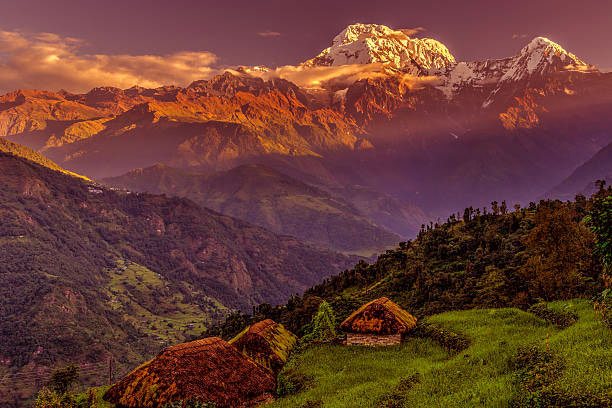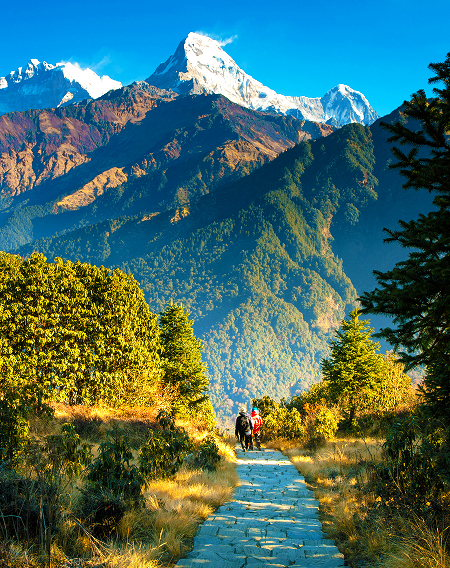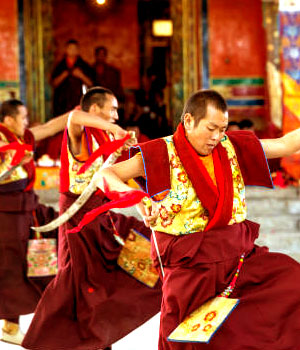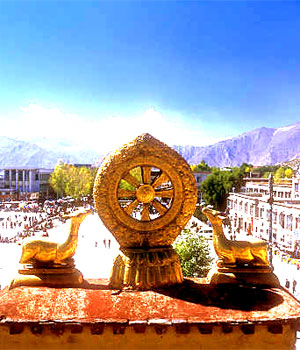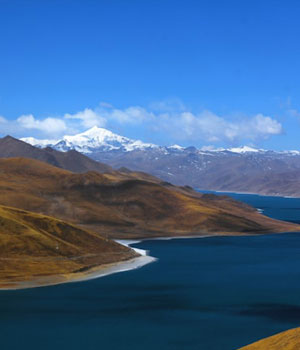Welcome to Tibet
Tibet, a rich and beautiful land, is located at the main part of Qinghai-Tibet plateau, south-West frontier of China. Tibet borders with Sichuan, Yunnan, Qinghai And Xinjiang; to the south contiguous to India, Nepal, Sikkim, Bhutan and Burma, and bounded by Kashmir on the west.
When the word Tibet is mentioned something icy chills the readers' nerves. In fact it snows only once or twice in a year and owing to the perpetuity of bright sunshine, it is not at all cold during the daytime even in the coldest of the winter. Tibet is so sunny that it produces a year-round sunshine of over 3,000 hours in a year. Its old name-land of snow" - the name by which Tibet is almost popularity known as, is always thickly covered with snow with hardly any signs of in habitation. In fact, it is correct only when it is referred to the world greatest ranges located in Ima, the Tisi, and like. These ranges, run by leaps and bounds across the country showing their beautiful snow covered peaks against the bluest of skies.
Geographically, Tibet can be divided into three major parts, the east, north and south. The eastern part is forest region, occupying approximately one-fourth of the land. Virgin forests run The entire breadth and length of this part of Tibet. The northern part is open grassland, where nomads and yak and sheep dwell here. This part occupies approximately half of Tibet. The southern and central part is agricultural region, occupying about one-fourth of Tibet's land area. with all major Tibetan cities and towns such as Lhasa, Shigatse, Gyantse ad Tsetang located in this area, it is considered the cultural center of Tibet. The total area of the Tibet Autonomous Region is 1,200,000 square kilometers and its population is 1,890,000. The region is administratively divided into one municipality and six prefectures. The municipality is Lhasa, while the six prefectures are Shigatse, Ngari, Lhaoka, Chamdo, Nakchu and Nyingtri (Kongpo). The People's Government of the Tibet Autonomous Region exercises the highest administrative authority in Tibet.
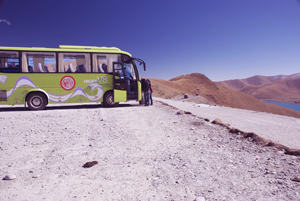
Tibet Overland Tour
Duration
8 DaysPrice
On RequestIncludes
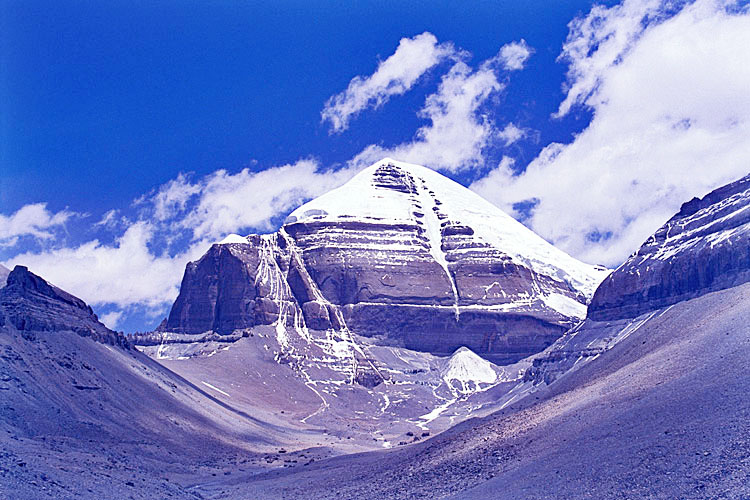
Kailash Manasarovar Tour
Duration
15 DaysPrice
On RequestIncludes
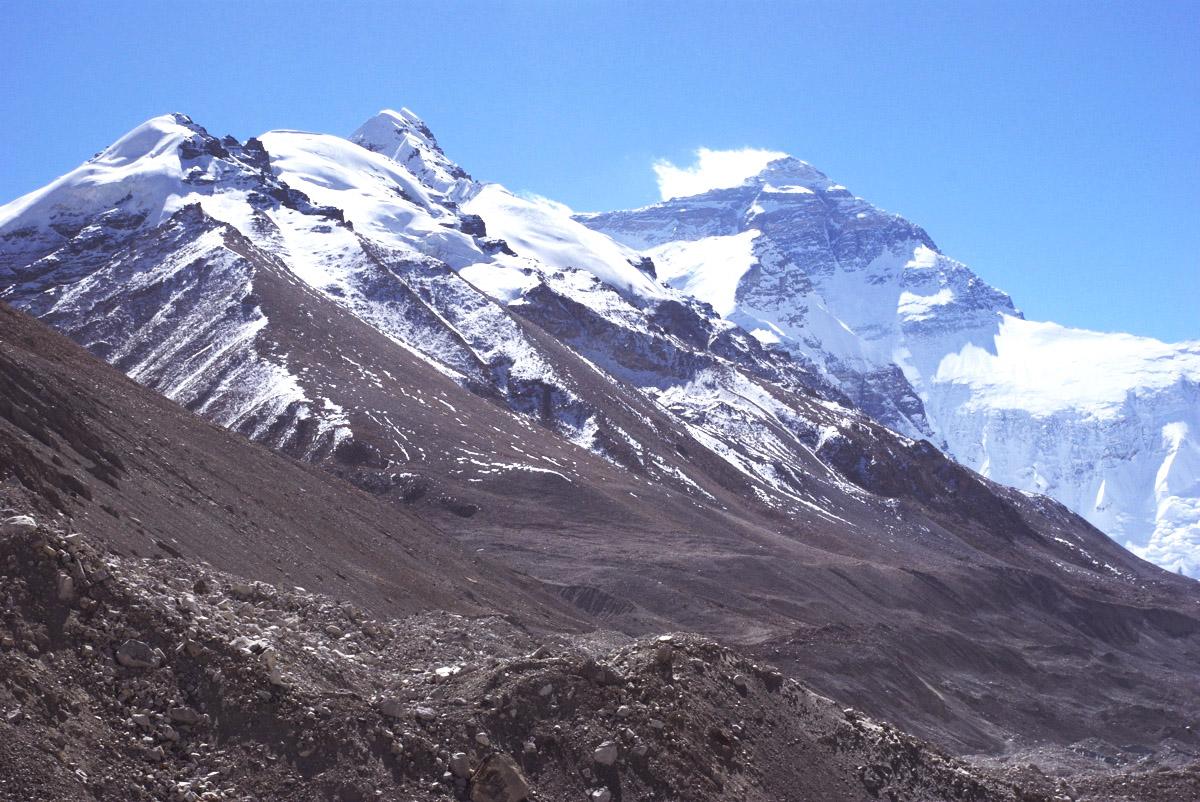
Lhasa - Everest Base Camp - Kathmandu Tour
Duration
10 DaysPrice
On RequestIncludes
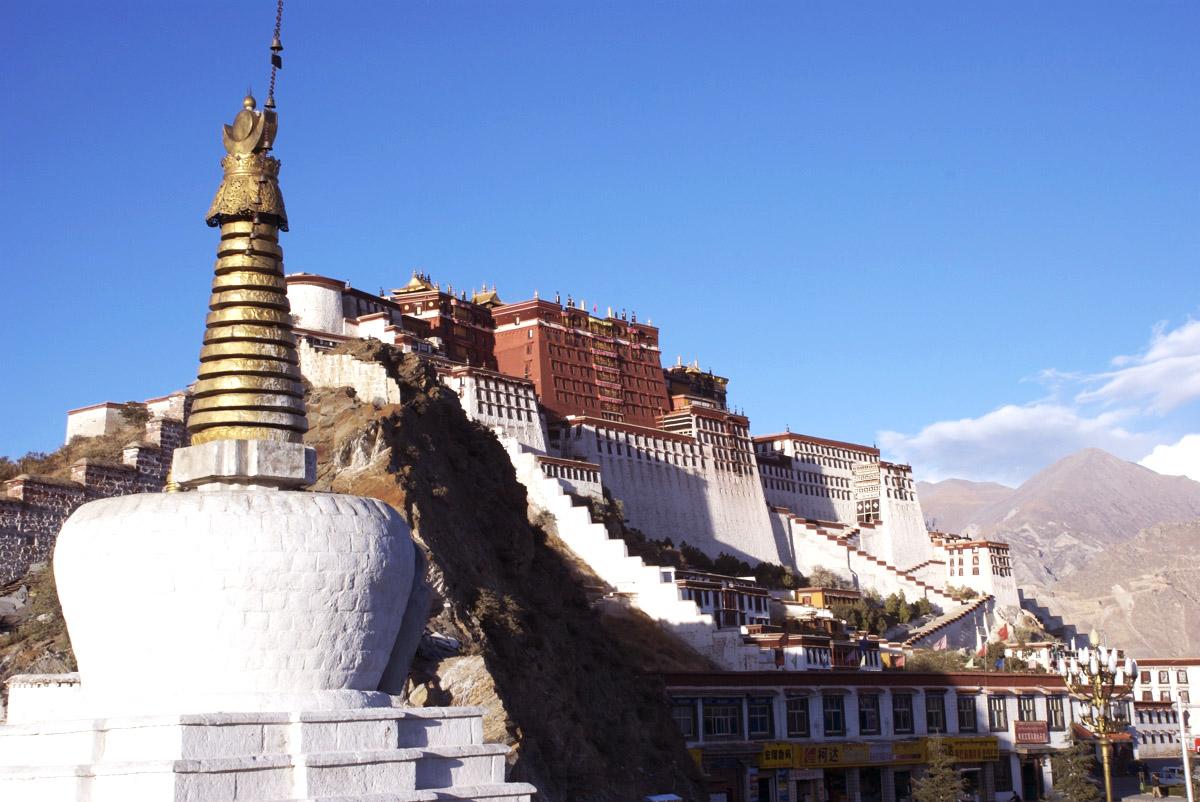
Lhasa - Everest Base Camp - Lhasa Tour
Duration
10 DaysPrice
On RequestIncludes
Explore Nepal: Adventure Awaits You Here!
Majestic mountains and serene landscapes
Rich culture, history, and warm hospitality
